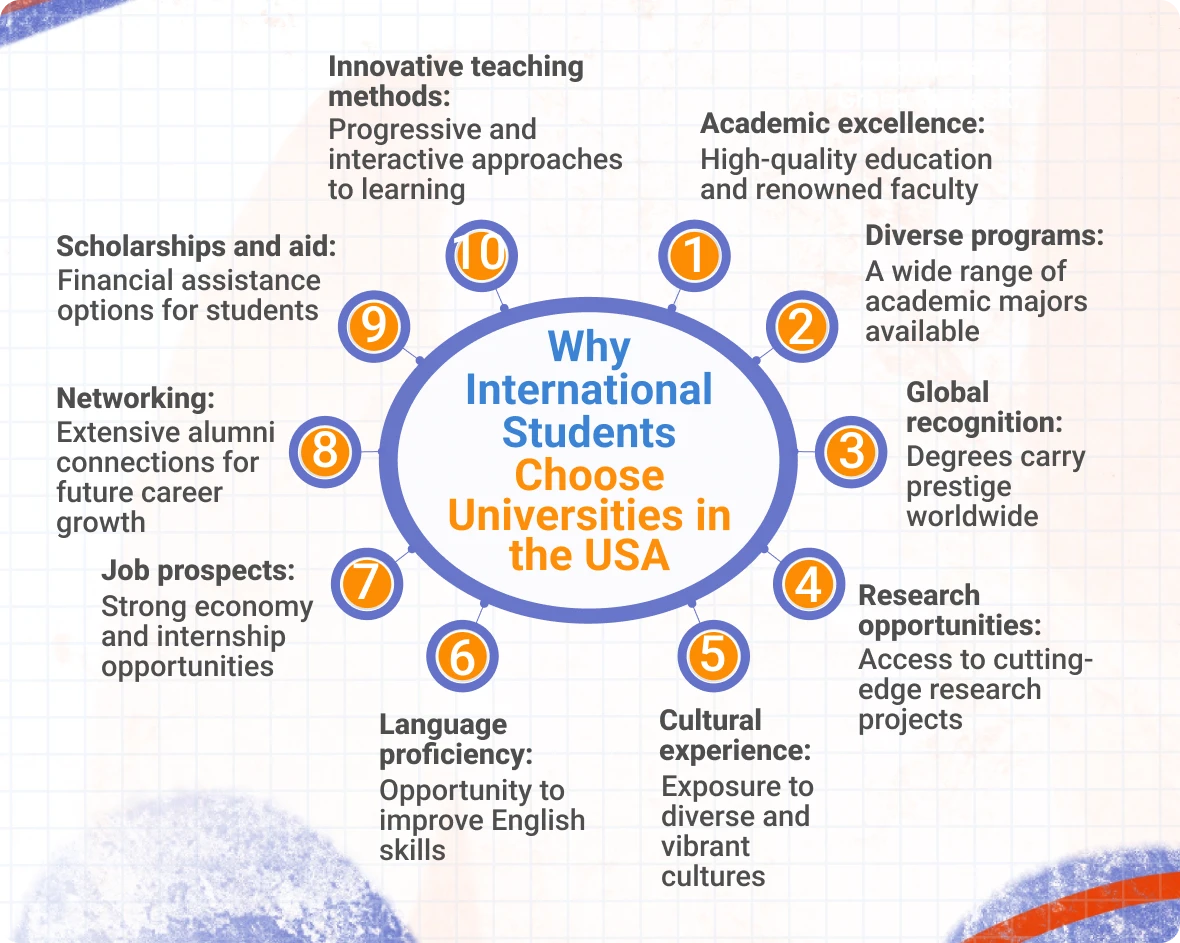Diving into the human mind requires not just passion but the right educational foundation. If you’re wrestling with the question, “Which degree is best for psychology?” the short answer is it depends on your career goals.
A bachelor’s degree offers a broad perspective, essential for entry-level roles, while a master’s or doctorate paves the way for specialized practice and research opportunities. Each academic path molds your understanding of psychological principles and practice, shaping a unique career trajectory in the vast field of psychology. Let’s explore the options to set you on the path to psychological expertise.
Which Degree Is Best for Psychology?
Choosing the best degree for a career in psychology can be as nuanced as the human mind itself. With a vast array of specialized fields and educational pathways, narrowing down the best fit requires a deep dive into the various psychology degrees available and the career outcomes they offer. Whether you’re setting out on your academic journey or considering a shift in your career trajectory, this guide lays out the essentials you need to consider when selecting the most suitable psychology degree for your aspirations.
Understanding the Levels of Psychology Degrees
Before delving into the specifics, it’s crucial to understand the different levels of degrees in psychology and what each entails. From undergraduate programs to doctoral studies, each level opens different doors and offers unique opportunities in the field of psychology.
Bachelor’s Degrees in Psychology
A bachelor’s degree in psychology is the first step into the world of psychological studies. Here are the types and features of bachelor’s degrees in psychology:
- Bachelor of Arts (B.A.) in Psychology: Focuses more on liberal arts, often including subjects like social sciences, humanities, and foreign languages.
- Bachelor of Science (B.S.) in Psychology: More scientifically oriented, with courses in biology, chemistry, and statistics.
With a bachelor’s degree, you can pursue entry-level jobs in various fields such as human resources, marketing, and social services. However, to practice as a psychologist, further education is typically required.
Master’s Degrees in Psychology
Building on the foundation of a bachelor’s degree, master’s programs delve deeper into specialized areas. They come in two main forms:
- Master of Arts (M.A.) in Psychology: This degree often emphasizes qualitative research and theoretical disciplines.
- Master of Science (M.S.) in Psychology: Tends to focus on quantitative research and the scientific aspects of psychology.
Earning a master’s degree can lead to more advanced roles, such as a clinical psychologist or counselor, but licensure and additional training are usually necessary.
Doctoral Degrees in Psychology
The most advanced degrees in psychology are the Doctor of Psychology (Psy.D.) and the Doctor of Philosophy (Ph.D.) in Psychology.
- Psy.D.: Emphasizes clinical practice and application of psychological principles.
- Ph.D.: Often research-oriented, focusing on generating new knowledge and experimental methods in psychology.
Doctorates open the highest level of employment opportunities, including clinical psychology practices, academic positions, and specialized research roles.
Specializations Within Psychology
The field of psychology is broad, and each specialization can affect which degree is the best choice. Here are a few popular areas of specialty:
Clinical Psychology
For those interested in diagnosing and treating mental health issues, a doctoral degree is often required. A Psy.D. may be more appropriate for direct client interaction, while a Ph.D. could be better suited for those wanting to combine treatment with research.
Counseling Psychology
Counseling psychologists focus on helping individuals with everyday life issues and may work in settings such as schools or private practices. A master’s degree can suffice for some counseling roles, but a doctoral degree can expand opportunities and earning potential.
Forensic Psychology
Forensic psychologists apply psychological principles within the legal system. This may require a master’s degree at a minimum, with many professionals holding a doctorate and additional forensic certification.
Industrial-Organizational Psychology
Industrial-organizational psychologists focus on workplace behavior and productivity. A master’s degree is often a basic requirement, with a Ph.D. or Psy.D. necessary for higher-level positions.
Neuropsychology
Neuropsychologists study the brain-behavior relationship and typically require a Ph.D. along with further postdoctoral training in neuroscience.
Factors to Consider When Choosing a Psychology Degree
When sifting through degree options, it’s important to weigh various factors to make the best decision for your psychology career goals:
Accreditation and Licensure Requirements
Ensure that the program you choose is accredited by a recognized accrediting body, such as the American Psychological Association (APA). This affects licensure prospects and the overall quality of education received.
Program Curriculum and Faculty Expertise
Review the courses offered and the faculty’s background. A program with a strong curriculum in your area of interest, taught by experienced professionals, will provide a richer educational experience.
Research, Internship, and Practical Experience Opportunities
Hands-on experience is invaluable in psychology. Seek out programs that offer internships, research projects, or practicum placements.
Long-Term Career Goals
Your degree choice should align with where you see yourself in the future. Higher degrees may offer more independence and responsibility, but they also come with a greater investment in time and money.
Job Prospects and Salaries Based on Degree Level
The level of your degree can significantly impact your job prospects and earning potential in the field of psychology:
- Bachelor’s Degree: Suitable for assistant roles, case management, or administrative work in mental health settings.
- Master’s Degree: Opens up options for therapy and counseling positions, as well as higher-level administrative roles.
- Doctoral Degree: Allows for independent practice as a licensed psychologist, academic positions, and upper-level research roles.
Salaries can range from around $40,000 for bachelor’s degree holders to well over $100,000 for those with a doctoral degree, depending on experience and location.
Online vs. In-Person Psychology Degrees
In today’s educational landscape, online degrees have become increasingly popular. Here’s how they compare to traditional in-person degrees:
Flexibility and Accessibility
Online programs often offer greater flexibility, making them a good option for working professionals or those with family obligations.
Program Quality
Accreditation and the institution’s reputation remain important, whether you’re pursuing an online or in-person degree.
Networking and Hands-On Experience
In-person programs may offer more direct networking opportunities and hands-on experiences, which are crucial in the field of psychology.
By carefully considering these aspects, you can select the psychology degree that not only aligns with your personal and professional aspirations but also sets you on a path to a fulfilling and successful career. Remember to assess each program thoroughly, and consider your long-term goals to ensure you make the most informed decision possible. Your journey through the mind begins with the right educational foundation, and with diligent consideration, you’ll be well on your way to nurturing a career that is both personally rewarding and beneficial to the well-being of others.
10 Psychology Careers To Know About
Frequently Asked Questions
What undergraduate degree is most beneficial for pursuing a career in psychology?
For those aiming to establish a career in psychology, a Bachelor of Science (BS) in Psychology or a Bachelor of Arts (BA) in Psychology serves as a solid foundation. A BS tends to have a stronger emphasis on math and science, including courses in biology, statistics, and experimental methods, which is particularly beneficial for students interested in fields such as neuropsychology or experimental psychology. A BA, on the other hand, often includes a broader liberal arts curriculum, which can be advantageous for students aspiring to enter fields such as counseling, education, or social work. Ultimately, the best undergraduate degree will align with your specific career goals and interests within the field of psychology.
How does a master’s degree in psychology differ from a doctoral degree in terms of career prospects?
Earning a Master’s degree in psychology can lead to opportunities in counseling, therapy, and various mental health services, often under the supervision of a licensed psychologist. It also opens doors to roles in research assistance, administration, and certain types of psychological assessments. In contrast, a Doctoral degree, such as a Ph.D. or Psy.D., qualifies you for independent practice as a clinical or counseling psychologist, an academic career in higher education, or advanced research positions. Doctoral programs also typically involve a longer period of study and include comprehensive exams as well as a dissertation based on original research.
What specialized psychology degrees can enhance job prospects in niche areas?
Specialized degrees within the field of psychology, such as a Master’s or Doctorate in Clinical Psychology, Forensic Psychology, Health Psychology, or Industrial-Organizational Psychology, can substantially improve job prospects in those specific areas. Such degrees focus on the skills and knowledge pertinent to each specialty, often combining practical experience with theoretical learning. Specialization can lead to roles like a forensic psychologist within the legal system, a health psychologist in healthcare settings, or an industrial-organizational psychologist in the business sector, all of which require specific expertise.
Is a degree in psychology versatile in terms of job opportunities?
A degree in psychology offers versatility and can be applied to numerous job sectors. The skills acquired, such as understanding human behavior, critical thinking, and effective communication, are desirable in various fields. Psychology graduates often find employment in business, education, health services, social work, and marketing, among other areas. The versatility of a psychology degree also allows for careers in human resources, public relations, and community service roles. The transferability of psychology-related skills can provide a competitive edge in many different job markets.
What should one consider when choosing between different psychology programs?
When selecting a psychology program, consider factors such as accreditation, curriculum, faculty expertise, the availability of specializations, research opportunities, and the program’s alignment with your career objectives. Accreditation ensures that the education provided meets certain quality standards, which is crucial for future licensure. The curriculum should cover areas you are interested in and provide a comprehensive understanding of different psychological theories and practices. Faculty expertise can greatly enrich the educational experience, while research opportunities can be pivotal for those looking to pursue further academic work or specializations. Finally, ensure the program supports your long-term career goals, whether that involves clinical practice, research, or another area within psychology.
How important is obtaining a license to practice psychology after completing a degree?
Obtaining a license is essential for individuals looking to practice psychology clinically. Each state has specific licensing requirements that typically include earning a Doctoral degree in psychology, completing a certain number of supervised practice hours, and passing a state licensure examination. Without a license, psychologists are limited in their ability to practice independently and cannot offer many clinical services, such as therapy or counseling. For those interested in non-clinical careers, such as academic research or teaching at the university level, a license is not always necessary. Nevertheless, licensure can enhance credibility and professional opportunities in the field of psychology.
Final Thoughts
Determining which degree is best for psychology depends on your career goals and interests. A Bachelor’s degree may suffice for entry-level positions, but a Master’s or Doctorate is essential for clinical practice and advanced research roles.
Ultimately, the best psychology degree aligns with your professional aspirations and provides the necessary education and credentials to achieve them. Consider your desired path in psychology carefully when choosing the degree that will serve you best.







